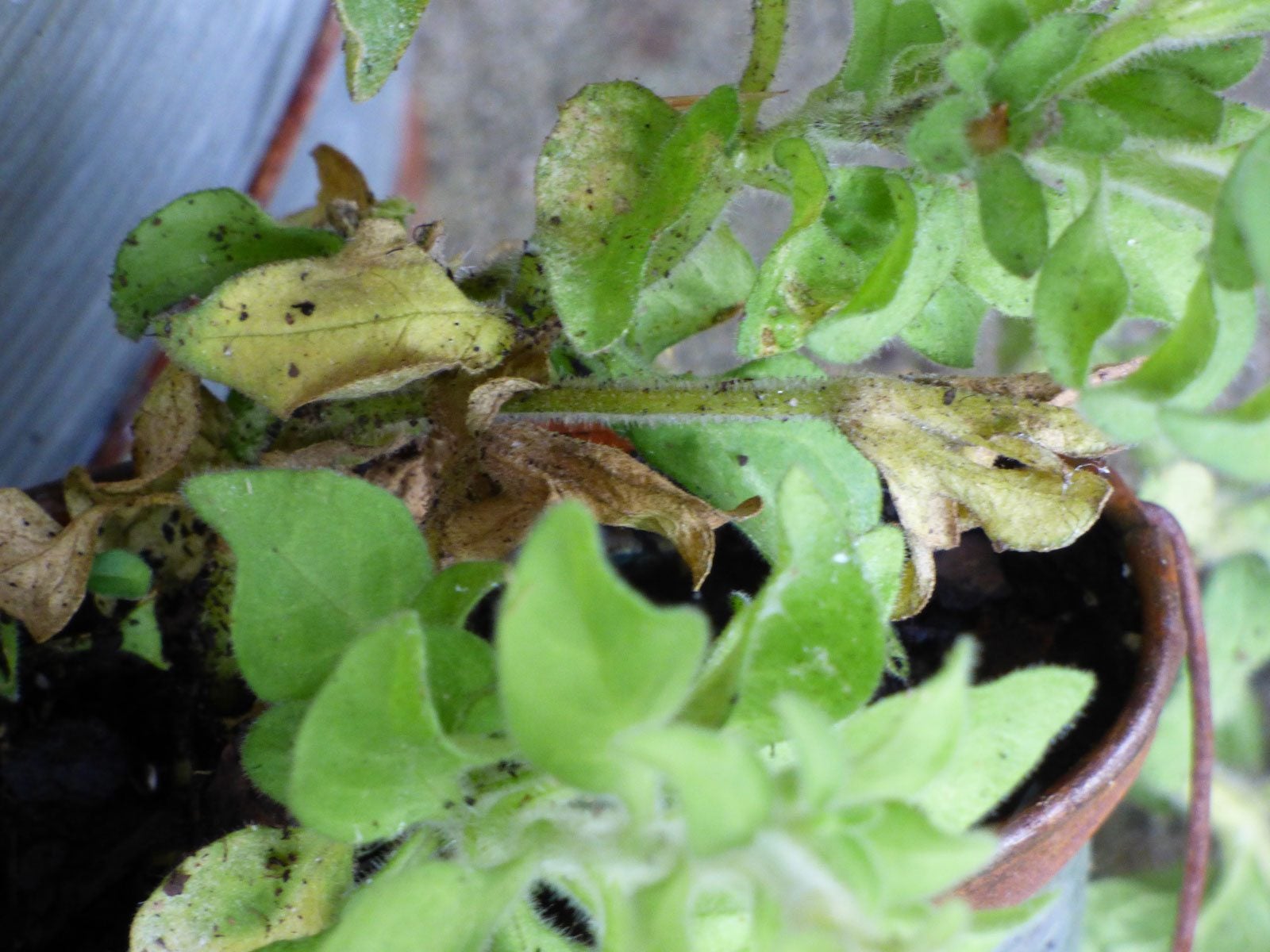Yellow Leaves On Petunia Plants: Why A Petunia Has Yellow Leaves


Sign up for the Gardening Know How newsletter today and receive a free copy of our e-book "How to Grow Delicious Tomatoes".
You are now subscribed
Your newsletter sign-up was successful
Petunias are beloved, no-fuss, annual plants that most gardeners can’t do without in the landscape. These plants are steady performers in summer, rewarding our neglect with bountiful flower displays and few pest and disease problems. Occasionally, however, a specific issue such as yellowing petunia leaves can be perplexing to gardeners.
Why a Petunia Has Yellow Leaves
In many cases, yellow leaves on petunia plants are cultural in nature but sometimes the cause is a common disease that can be spread from cucurbits. Some information on the exact symptoms and causes can help you determine if your petunia is destined for the rubbish bin or if you can save the plant to bloom another day. Petunias need well-drained soil, bright sunlight, and warm temperatures for best performance. These annuals come in a variety of petal formations, providing an ideal appearance for any type of flower display. When you see leaves on petunias turning yellow, it is important to note the pattern of fading. Some patterns indicate a destructive virus that can infect other plants in the garden, as it is transmitted through the feeding activities of aphids. How can you tell if a virus is causing yellowing petunia leaves or if you simply need to water or fertilize? The word “mosaic” is a clue.
Cultural Causes of Yellow Leaves on Petunia
Petunias need plenty of water but they don’t like their petals and leaves to remain wet. This can cause them to wilt and occasionally discolor. Water from the base of the plant deeply and allow the soil to dry out in the top few inches (5 to 10 cm.) before drenching the plant anew. Soil that doesn’t percolate leaves roots soggy and unhappy. Make sure your soil is a well-draining mix. Potting mixes should be half peat moss and half soil. The peat moss will provide adequate acidity to these plants. You should perform a soil test before installing in-ground plants to ensure adequate acidity. If the test comes back too alkaline, amend the soil to increase the acidity.
Nutrient Deficiencies Causing Petunias with Yellow Leaves
Young petunias need plenty of nitrogen to force green leaf and shoot development. When grown in nitrogen-poor soil, older leaves will turn greenish-yellow or even fully yellow. Chlorosis in the veins of leaves may indicate a potassium deficiency. When a petunia with yellow leaves has necrotic spots at the veins after fading, a higher dose of potassium is required. Magnesium deficiency creates a similar condition on the newest leaves. Young leaves on sulfur-deprived plants are decidedly greenish-yellow. Micronutrient deficiencies that can cause yellowing petunia leaves are boron, manganese, and iron. Iron is the most common deficiency in many regions. A soil test can help determine which nutrients need to be administered.
Leaves on Petunias Turning Yellow Due to Disease
The most probable cause of petunias with yellow leaves is the tobacco mosaic virus. Here is where the indicating word “mosaic” can help identify the disease. A mosaic is a collage of patterns that create an image. In the case of the yellowed petunias, the mosaic shows as mottling in golden yellow. It almost seems purposeful but instead is an indication that your plant has been infected with TMV. This virus affects cucumbers, tobacco, and other plants. It is transmitted through aphids but also in soil and through the hands of tobacco users. Once your petunias have the virus, there is no cure and they should be thrown out. Do not add them to the compost pile, as average temperatures are not high enough to destroy the disease and you could inadvertently spread it around your garden.
Sign up for the Gardening Know How newsletter today and receive a free copy of our e-book "How to Grow Delicious Tomatoes".

Bonnie Grant is a professional landscaper with a Certification in Urban Gardening. She has been gardening and writing for 15 years. A former professional chef, she has a passion for edible landscaping.